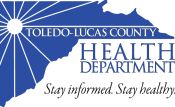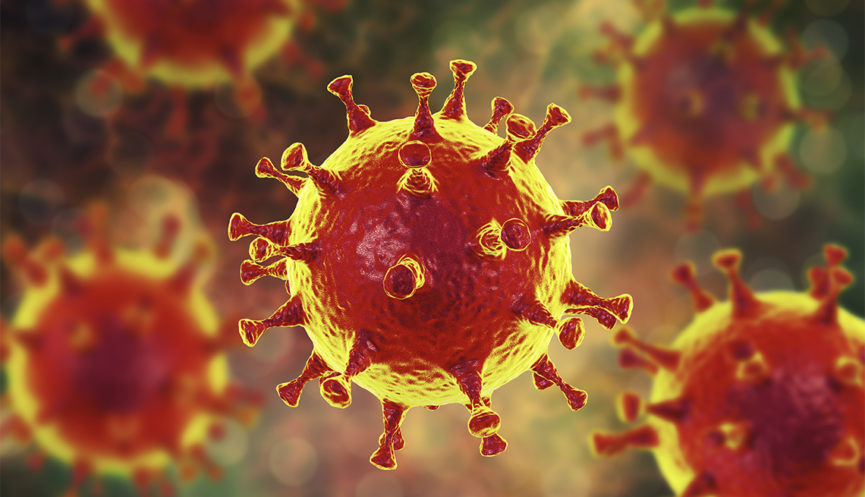Coronavirus Information: UPDATED Feb 26, 2020.
The Toledo- Lucas County Health Department is closely monitoring an outbreak of respiratory illness caused by a novel (new) coronavirus (initially 2019-nCoV and now called COVID-19) that was first detected in Wuhan City, Hubei Province, China and which continues to expand.
Response Actions
The Toledo -Lucas County Health Department continues to work closely with state and federal health officials to appropriately monitor or test any individuals returning from higher risk areas. Countries in addition to China are now seeing sustained transmission of COVID-19; travel alerts have been added through the Centers for Disease Control and Prevention (CDC): Click here.
We are actively preparing for the possibility of local cases and the spread of illness in Lucas County. This includes sharing information about the situation locally and where to get reliable state, national, and international updates. It also includes working closely with health care providers, other first responders, and community members to prepare for any disease control measures, such as social distancing or limiting public gatherings, that may be needed if the situation changes. Currently no additional actions are recommended.
Good handwashing, staying away from others if sick and covering your cough are always recommended. Flu continues to circulate locally.
Prevention
There is currently no vaccine to prevent coronavirus disease 2019 (COVID-19). The best way to prevent illness is to avoid being exposed to this virus.
- Avoid close contact with people who are sick.
- Avoid touching your eyes, nose, and mouth.
- Stay home when you are sick.
- Cover your cough or sneeze with a tissue, then throw the tissue in the trash.
- Clean and disinfect frequently touched objects and surfaces using a regular household cleaning spray or wipe.
- Follow CDC’s recommendations for using a facemask.
- CDC does not recommend that people who are well wear a facemask to protect themselves from respiratory diseases, including COVID-19.
Facemasks should be used by people who show symptoms of COVID-19 to help prevent the spread of the disease to others. The use of facemasks is also crucial for healthcare workers and people who are taking care of people in close settings (at home or in a health care facility).
If soap and water are not readily available, use an alcohol-based hand sanitizer with at least 60% alcohol. Always wash hands with soap and water if hands are visibly dirty.
Wash your hands often with soap and water for at least 20 seconds, especially after going to the bathroom; before eating; and after blowing your nose, coughing, or sneezing.
You CANNOT tell if someone has a risk of spreading novel coronavirus by what they look like. Stereotypes and discrimination harm public health.
Transmission and Testing
It is unclear how easily the virus is spreading between people at this time. Signs and symptoms of this illness include fever, cough, and difficulty breathing. The most up-to-date information on the situation is available from the Centers for Disease Control and Prevention (CDC) here.
All testing is currently done at Centers for Disease Control and Prevention (CDC). Testing is only approved if certain travel conditions are met and symptoms are consistent with COVID-19.
Information on Traveler and Airport Screening
Individuals returning from China now enter the U.S. through one of 11 airports, including Detroit Metropolitan Airport (DTW). CDC staff are screening individuals for symptoms consistent with coronavirus and providing information or instructions. Toledo-Lucas County Health Department is in close contact with state and federal health officials to support any necessary monitoring or testing of local individuals.
The CDC has now issued a travel alert regarding South Korea and Japan. Anyone spending time in these countries should watch themselves for symptoms for 14 days after and let their health care provider know about their travel history before seeking medical care. For more, see travel notices, click here. And, information for travelers from China arriving in the U.S.
About Coronaviruses
Coronaviruses are a large family of viruses, some causing illness in people and others that circulate among animals, including camels, cats and bats. Rarely, animal coronaviruses can evolve and infect people and then spread between people such as has been seen with MERS and SARS. When person-to-person spread has occurred with SARS and MERS, it is thought to have happened via respiratory droplets produced when an infected person coughs or sneezes, similar to how influenza and other respiratory pathogens spread. Spread of SARS and MERS between people has generally occurred between close contacts. Past MERS and SARS outbreaks have been complex, requiring comprehensive public health response.
Symptoms of COVID-19 include fever, cough, or difficulty breathing.
Materials
Further Ohio information:
- ODH is Monitoring Person Under Investigation for 2019 Novel Coronavirus– Feb 5, 2020
- ODH Classifies Novel Coronvirus immediately reportable disease-Jan 24, 2020
Further information from the CDC:
General and travel information
- Novel Coronavirus 2019: www.cdc.gov/nCoV
- Novel Coronavirus in the U.S. (case counts): https://www.cdc.gov/coronavirus/2019-ncov/cases-in-us.html
- Situation summary: https://www.cdc.gov/coronavirus/2019-nCoV/summary.html
- Travel notice: https://wwwnc.cdc.gov/travel/notices/watch/novel-coronavirus-china
Fact sheets in multiple languages
- What you need to know about 2019-nCov: Simple Chinese
- What you need to know about 2019-nCoV: Spanish
- What you need to know about 2019-nCoV: English
- What the public should do to prevent the spread of 2019-nCov: English
Information for providers
- Information for health care professionals: https://www.cdc.gov/coronavirus/2019-nCoV/guidance-hcp.html

